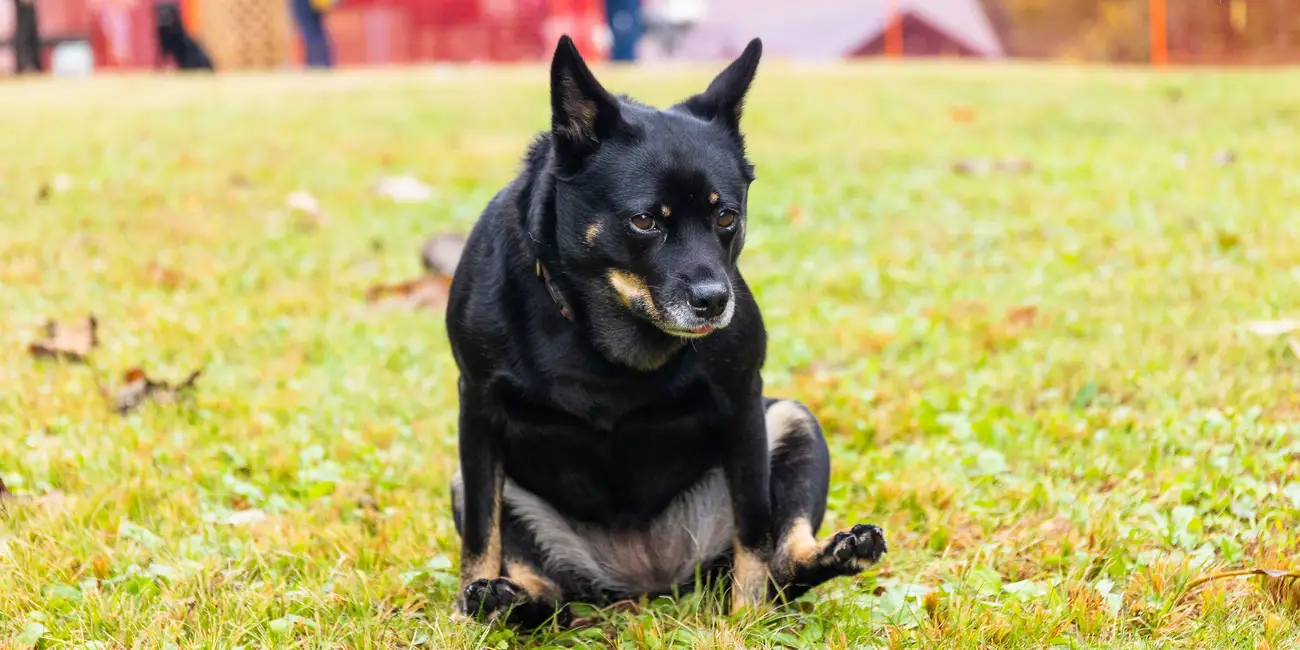Why is My Dog Scooting His Butt?
As a dog owner, it can be quite alarming to witness your furry companion scooting their butt across the floor. This peculiar behavior can leave you wondering why they engage in such an embarrassing act. While it may seem amusing or even humorous at first glance, scooting can actually indicate an underlying issue that requires attention and proper care.
In this article, we will delve into the reasons behind why dogs scoot their butts, exploring both medical and behavioral factors that contribute to this peculiar behavior. Understanding the potential causes can help you identify when it is necessary to seek veterinary assistance or make changes in your dog’s lifestyle to alleviate discomfort or prevent future occurrences.
During the course of this article, we will discuss common medical conditions that lead to scooting, such as anal gland problems, allergies, intestinal parasites, and gastrointestinal issues. Additionally, we will explore behavioral factors, including hygiene and cleanliness, that may contribute to this behavior.
It is important to note that while scooting may sometimes be a harmless and temporary occurrence, it can also be a sign of a more serious underlying issue. Therefore, as responsible dog owners, it is crucial to be aware of the potential causes and take appropriate action to ensure the well-being and comfort of our beloved pets.
In the following sections, we will delve deeper into the main reasons behind scooting behavior, providing valuable insights and practical recommendations to address this concern effectively. By the end of this article, you will have a better understanding of why your dog may be scooting their butt and how to best address the issue to keep them happy and healthy.

Why is My Dog Scooting His Butt
Stay tuned for the main text, where we will explore the medical conditions that can cause scooting in dogs.
Understanding the Reasons Behind Scooting Behavior in Dogs
Anal Gland Problems
One of the most common reasons why dogs scoot their butts is due to anal gland issues. Dogs have two small glands located on either side of their anus, which produce a foul-smelling fluid. This fluid is normally expelled during bowel movements, but sometimes the glands can become clogged or infected, leading to discomfort. In an attempt to alleviate this discomfort, dogs may resort to scooting their butts across the ground. If you notice your dog scooting frequently, it is essential to have their anal glands checked by a veterinarian to prevent further complications.
Allergies
Allergies, both food and environmental, can also contribute to scooting behavior in dogs. When dogs experience an allergic reaction, it can lead to itchiness and irritation in the anal area. This discomfort may prompt them to scoot in an attempt to find relief. Common allergens include certain ingredients in their diet, pollen, dust mites, or even certain fabrics. Identifying and eliminating the allergen is crucial to alleviate the symptoms and reduce scooting episodes.
Intestinal Parasites
Another possible cause of scooting is the presence of intestinal parasites such as worms. Parasites like roundworms or tapeworms can irritate the digestive tract, causing discomfort and itchiness around the anus. Dogs may scoot to alleviate this irritation. Regular deworming and maintaining good hygiene practices can help prevent and address this issue.
Gastrointestinal Issues
Gastrointestinal problems, such as diarrhea or constipation, can also lead to scooting behavior. When dogs experience digestive issues, it can cause discomfort and inflammation in the anal area. In an attempt to relieve this discomfort, they may resort to scooting. It is important to address any underlying gastrointestinal problems through dietary adjustments, proper hydration, and veterinary guidance.
Practical Recommendations to Address Scooting Behavior
Veterinary Examination
If your dog is scooting their butt frequently or excessively, it is crucial to schedule a veterinary examination. A professional can assess your dog’s overall health, check their anal glands, and rule out any underlying medical conditions. They may also recommend specific treatments or medications to alleviate discomfort and resolve the issue.
Proper Anal Gland Care
Regular anal gland expression is necessary for some dogs who are prone to recurrent anal gland problems. This can be done either by a veterinarian or a trained groomer. Additionally, maintaining a high-fiber diet can help promote healthy bowel movements and prevent anal gland issues.
Allergy Management
If allergies are identified as the cause of scooting, it is important to manage them appropriately. This may involve dietary changes, such as switching to a hypoallergenic dog food, or minimizing exposure to environmental allergens. Consultation with a veterinarian or veterinary dermatologist can help determine the best course of action.
Hygiene and Cleanliness
Good hygiene practices are essential to prevent and address scooting behavior. Regularly cleaning your dog’s anal area with gentle pet wipes or a damp cloth can help alleviate discomfort and reduce the likelihood of infection. Additionally, keeping your dog’s bedding and living area clean can minimize exposure to potential irritants.

Why is My Dog Scooting His Butt
Conclusion
In conclusion, understanding the reasons behind why is my dog scooting his butt can help pet owners address their furry friend’s discomfort promptly. For comprehensive insights and expert advice on this behavior, visiting geepets.com can be an invaluable resource. They offer a wide range of articles on dog health and well-being that can shed light on this issue and more.
Additionally, for further reading on common canine behaviors and health concerns, the American Kennel Club’s website (akc.org) is another excellent source of information. Both these resources can provide pet owners with the knowledge needed to ensure their dog’s health and happiness.
Actionable Recommendations to Address Scooting Behavior in Dogs
1. Veterinary Examination
If your dog is frequently scooting their butt, it is essential to schedule a veterinary examination. A professional can assess your dog’s overall health, check their anal glands, and rule out any underlying medical conditions. They may also recommend specific treatments or medications to alleviate discomfort and resolve the issue.
2. Proper Anal Gland Care
Regular anal gland expression is necessary for some dogs who are prone to recurrent anal gland problems. This can be done either by a veterinarian or a trained groomer. By ensuring the anal glands are regularly expressed, you can prevent blockages and reduce the likelihood of scooting behavior. Additionally, maintaining a high-fiber diet can help promote healthy bowel movements and prevent anal gland issues.
3. Allergy Management
If allergies are identified as the cause of scooting, it is important to manage them appropriately. Consult with a veterinarian or veterinary dermatologist to determine the specific allergens affecting your dog. They may recommend dietary changes, such as switching to a hypoallergenic dog food, or minimizing exposure to environmental allergens. By addressing the underlying allergies, you can reduce discomfort and minimize scooting episodes.
4. Hygiene and Cleanliness
5. Regular Deworming
To prevent scooting caused by intestinal parasites, it’s crucial to follow a regular deworming schedule as recommended by your veterinarian. Deworming treatments can help eliminate and prevent infestations, reducing the likelihood of scooting behavior. If you’re wondering, “Why is my dog scooting his butt?” it’s often a clear sign that your dog could be experiencing discomfort due to intestinal parasites. By adhering to a deworming schedule, you can address the root cause of “Why is my dog scooting his butt?”
This proactive approach ensures that the question of “Why is my dog scooting his butt?” is less likely to arise, as regular deworming significantly diminishes the chances of parasitic infections that can lead to uncomfortable scooting behavior. Remember, understanding “Why is my dog scooting his butt?” and taking preventative measures like deworming can make a huge difference in your dog’s comfort and health.

Why is My Dog Scooting His Butt
6. Dietary Adjustments
In cases where gastrointestinal issues contribute to scooting behavior, dietary adjustments may be necessary. If you’re wondering, “Why is My Dog Scooting His Butt,” it could be a sign that your pet’s diet needs to be evaluated. Consult with your veterinarian to determine the best diet for your dog, considering their specific needs and any underlying digestive sensitivities. Ensuring a balanced and easily digestible diet can help promote healthy bowel movements and reduce scooting.
Addressing the question, “Why is My Dog Scooting His Butt,” with dietary changes is a proactive approach to your dog’s health. It’s crucial to closely monitor their reaction to new foods and maintain communication with your vet, especially if “Why is My Dog Scooting His Butt” remains a persistent concern. This tailored approach to nutrition can significantly alleviate the discomfort causing your dog to scoot, directly addressing the underlying issue behind “Why is My Dog Scooting His Butt.”
7. Regular Exercise and Mental Stimulation
Regular exercise and mental stimulation are vital for your dog’s overall well-being. Engaging your dog in physical activities and providing mental enrichment can help alleviate stress and promote healthy digestion. A healthy and active lifestyle can contribute to reducing scooting behavior.
By implementing these actionable recommendations, you can address the underlying causes of scooting behavior in dogs and improve their overall comfort and well-being. Remember, if the scooting persists or worsens, always consult with a veterinarian for proper diagnosis and treatment.






















